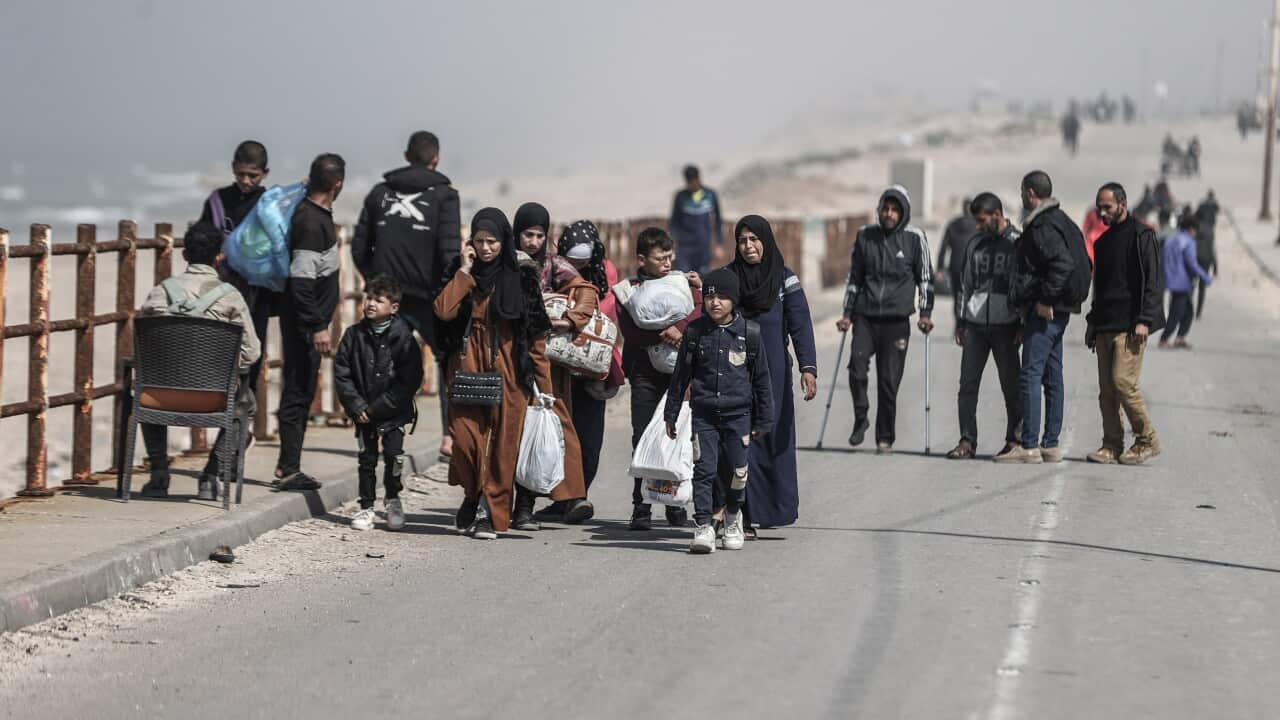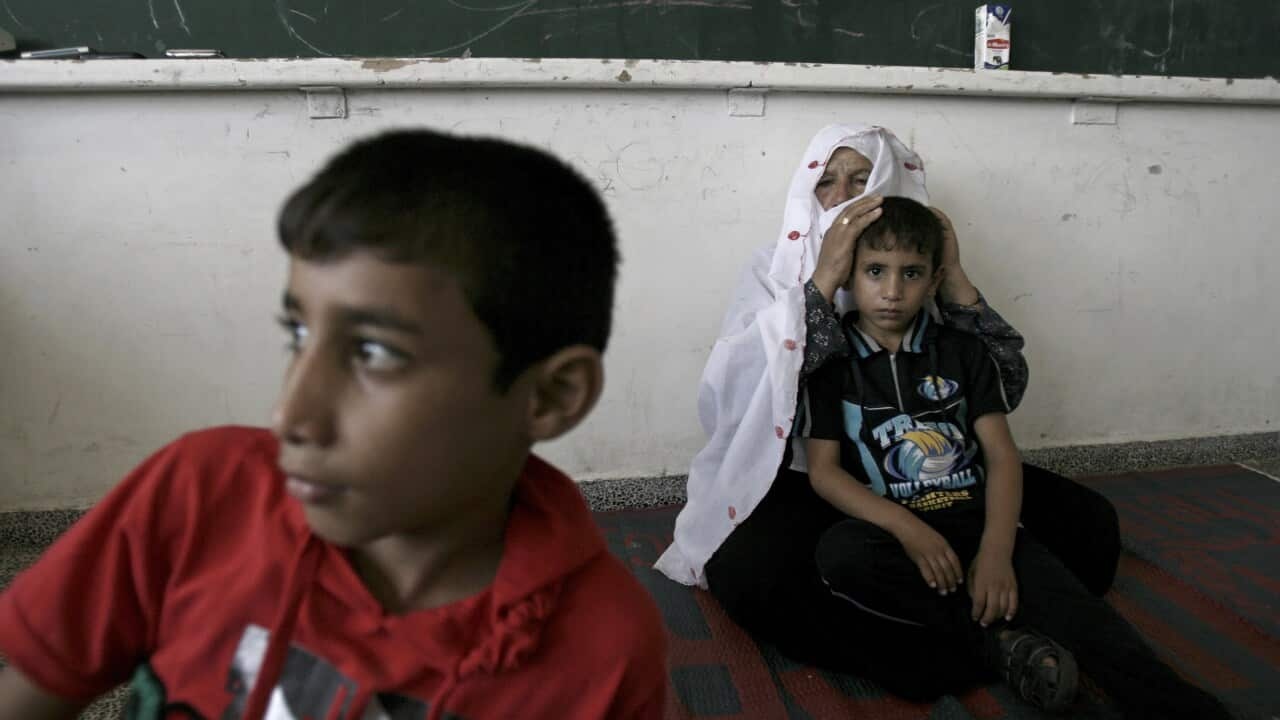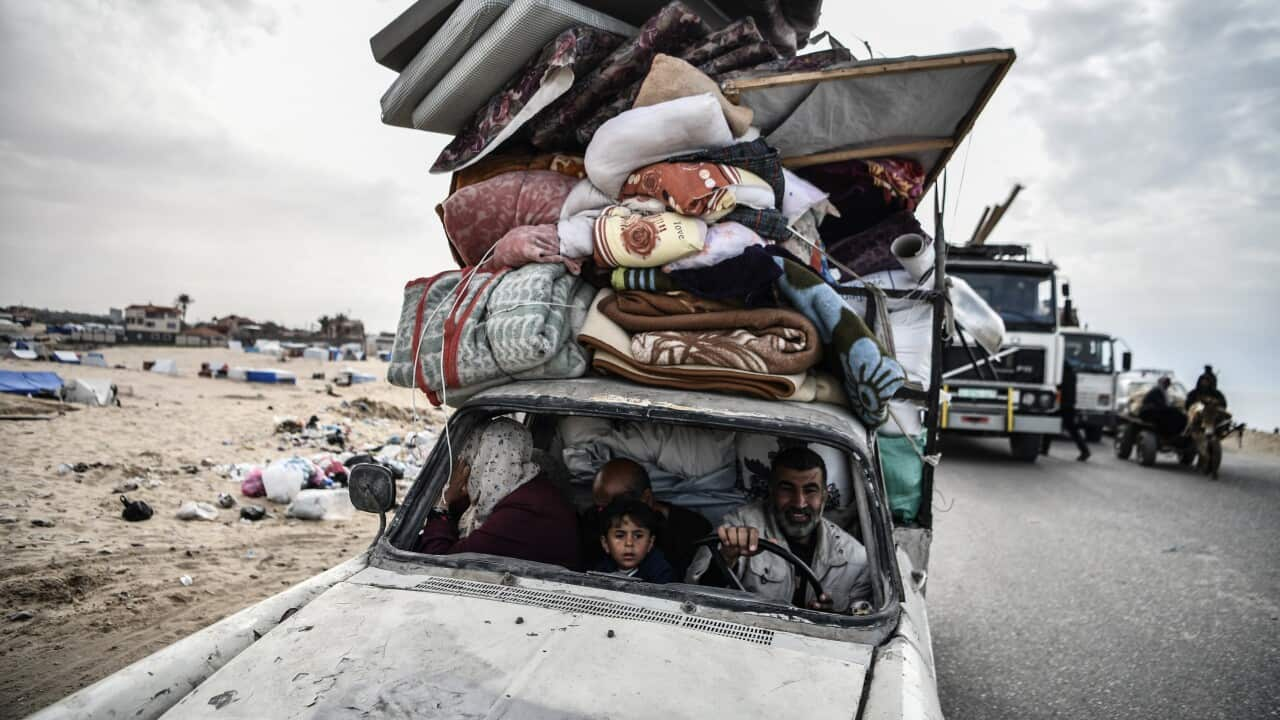The Australian family of two Palestinians whose visas were revoked while fleeing Gaza has demanded the federal government give them answers as to why they were cancelled.
SBS News is now aware of seven cases where the visitor visa issued by the Australian government was retracted in recent days.
Dana Altaq's brother-in-law discovered his Australian visa had been cancelled while trying to check in to his flight from Egypt.
Her husband's cousin found out his visa had been revoked while transiting through China.
"Give us reasons; we just want to know why," Altaq told SBS Arabic.
"You offered a helping hand, why are you suddenly retracting that hand?
"These people have suffered so much, I think they deserve to be away for three months and reunite with their families. I think that's the least the Australian government can offer them."
The government has cited ongoing security checks as it defended cancelling the visas while people were in transit.
The General Delegation of Palestine to Australia, Aotearoa New Zealand and the Pacific has urged the government to "urgently" reconsider its decision and enable those who had been granted visas to travel safely to Australia.
"With extreme difficulty, these individuals and families were finally able to exit through the Rafah crossing and escape unimaginable horrors in Gaza, only to find themselves stranded in transit countries, unable to travel onward to Australia," the delegation said in a statement.
"Transit countries permitted them entry for a limited time only because they held Australian visas: they will be forced to leave, but they have nowhere else to go.
"Introducing such unjustified measures will undermine the positive engagement process between the Australian government and the Palestinian community, and widen the gap that is already growing between them, worsened by Australia's ongoing suspension of aid to UNRWA."
Samah Sabawi, co-founder of the advocacy group Palestine Australia Relief and Action (PARA), described the situation as "completely dehumanising, exhausting, disappointing."
"We need compassion in this world, we need to be seen as human beings, we need our families to matter," she said.
"We need this government to give us certainty. We need them to stop making everything so vague, and then us finding out mid-air if somebody is going to be saved or sent back to the inferno."
Sabawi, who is in Cairo supporting those in limbo, said Palestinian-Australians had hoped to help their relatives and friends reach safety.
"The difficult part for us as Australian citizens is, we were put in this position by our government, where we were given the hope that we can save the lives of our loved ones," she said.
"And so now we have to face up to them and say, 'we're sorry, we're just gonna go on living our privileged lives'."
In one case, a woman was about to board a plane to Australia when she received the notice.
Sabawi said the woman's heart had been "dancing with joy" at the prospect of being with her sister in Australia.
"There was an officer there who met her carrying a sign with her name, who basically told her you can't continue this trip, you have to be returned to Egypt," Sabawi said.
"Palestinians are faced with the choices now all the time.
"They have to choose ... who gets to eat, who gets to drink, who gets to survive."
A spokesperson for Home Affairs Minister Clare O'Neil responded to SBS inquiries amid ongoing appeals from advocacy groups to explain its abrupt decisions.
"The Australian Government recognises that this is an incredibly distressing time for Australians with extended family members in Gaza," the statement said.
"All visa applicants undergo security checks and are subject to ongoing security assessments. The Australian government reserves the right to cancel any issued visas if circumstances change."
The spokesperson also said that, due to privacy reasons, "we will not comment on individual cases".
"This whole uncertainty and not knowing what's going on is causing significant distress and significant concern amongst the community and the family members in [Australia]," PARA co-founder Rasha Abbas told SBS News.
"We're really asking the government to show some compassion towards the Australian family members and their family members who've left the horrors of Gaza."
PARA has identified several individual cases where women and children were issued Australian visas, underwent security checks, managed to get out of Gaza through the Rafah Crossing into Egypt, and boarded flights to Australia in recent days.
But during their transit period between flights, they received notification their once-approved visas had been cancelled.
SBS News has seen a number of these visa cancellation notices.
"The delegate considered you never intended a genuine stay temporarily in Australia and therefore the visa was granted based on circumstances which never existed," the notices read.
Abbas says these are the same types of visitor visa arrangements that were in place for Ukrainians when they were able to come to Australia.
She has been meeting with government representatives today but said she has no clarity on why these sudden decisions were made, and said the families have been left in "limbo".
"Those are families that paid their life savings, or their families here in Australia took loans or sold their own assets, to pay for those dear family members to be able to exit Gaza," she said.
"So, they arrive in Egypt with literally not much left with them and with the hope of being able to join their family members here in Australia."
PARA is now reassessing its efforts to support other visa holders who are considering whether they should get on flights out of Egypt, potentially facing the same response from the Australian government.
"They can't stay in Egypt, and now we've shut the door on them here in Australia," Abbas said.




